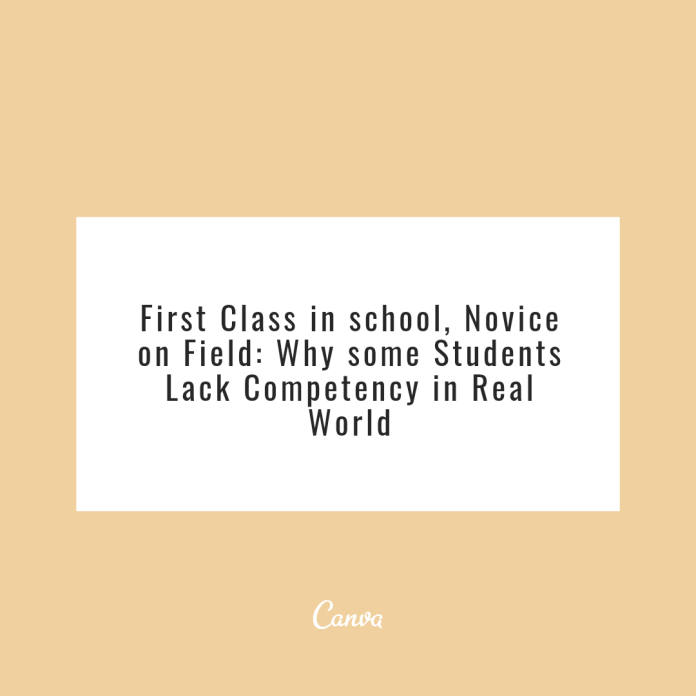Interviewer: Good day, and thanks for being here. Let’s explore the topic of why some students perform well in class but may not be competent in practical fieldwork.
To start, could you introduce yourself and your expertise in education and student performance?
Respondent: Certainly. I’m Dr. Jennifer Adams, an educator and researcher specializing in student performance and learning outcomes. I’ve been involved in education for over two decades, studying factors that influence students’ success.
Interviewer: Excellent. Let’s delve into the first question. Why do you think some students who excel in the classroom may struggle when it comes to applying their knowledge in practical, real-world situations?
Respondent: One significant factor is the difference between theoretical and practical learning. In the classroom, students often focus on acquiring knowledge and understanding concepts, but they may not have opportunities to apply that knowledge in real-world scenarios. Additionally, anxiety or nervousness in practical situations can hinder their performance.
Interviewer: Can you elaborate on the role of anxiety or nervousness in this context?
Respondent: Certainly. Some students who excel academically may become anxious or self-conscious when faced with real-world challenges. The pressure to perform well can affect their confidence and hinder their ability to apply their knowledge effectively.
Interviewer: Are there specific academic environments or teaching methods that may contribute to this gap between classroom performance and field competence?
Respondent: Yes, teaching methods that prioritize rote memorization and standardized testing may not adequately prepare students for real-world problem-solving. A more balanced approach, including hands-on learning and practical applications of knowledge, can bridge this gap.
Interviewer: What can educators and institutions do to help students transition from theoretical understanding to practical competence?
Respondent: Educators can incorporate experiential learning, internships, or real-world projects into their curricula. Encouraging critical thinking and problem-solving skills rather than rote memorization is crucial. Additionally, providing mentorship and guidance during the transition to practical settings can be immensely beneficial.
Interviewer: Are there any personal qualities or skills that students can develop to better bridge this gap?
Respondent: Yes, resilience and adaptability are valuable qualities. Students who can embrace challenges, learn from failures, and adapt their knowledge to new situations tend to perform better in practical settings. Effective communication and teamwork skills are also essential for real-world success.
Interviewer: Finally, Dr. Adams, what advice would you give to students who excel in class but may be concerned about their competence in the field?
Respondent: I would advise them to seek out opportunities for hands-on learning and real-world experiences whenever possible. Don’t be afraid to make mistakes and learn from them. Seek mentorship and guidance from professionals in your field of interest, and remember that competence in the field often comes with practice and experience.
Interviewer: Thank you, Dr. Adams, for shedding light on this important topic. Understanding why some students face this challenge is valuable for both educators and students alike.
Respondent: You’re welcome. It’s crucial to address this issue to better prepare students for success beyond the classroom.




